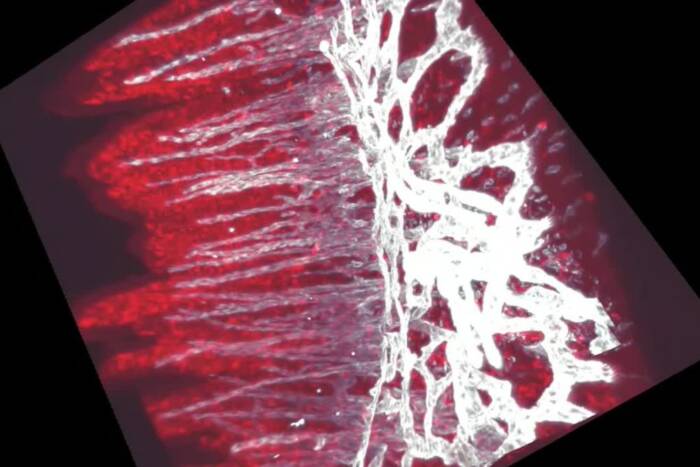New hospital initiatives aim to engage minorities in science
by JOSEPH BONNER
Women and minorities continue to be underrepresented in the science and technology workforce, and new initiatives at Rockefeller University are working to change that. Led by Bernice B. Rumala, community engagement specialist in the Center for Clinical and Translational Science (CCTS), the new programs aim to engage minority groups at several career stages, from high school students to early career scientists.
“At the heart of community engagement is the participation of the community itself in incorporating local priorities and expertise to solve problems,” says Rhonda Kost, cochair of the CCTS’s Action Committee on Community Engaged Research. “Bernice’s efforts at engaging underrepresented and disadvantaged students and trainees in translational science outreach and mentoring open a pipeline of possibilities for encouraging careers in science as well as enhancing the scientific knowledge of community members.”
Ms. Rumala, who joined Rockefeller in 2010, has for the past two years been working with Ted Scovell, director of the university’s Science Outreach program for high school students and teachers, to broaden participation in the program in several city neighborhoods. To improve participation from disadvantaged students, Ms. Rumala proposed recruiting students via a matchmaking Web site that pairs teachers and students with mentors based on their interests. Because this “e-matching” approach draws from dozens of high schools in and around the city, and works with numerous science and technology professionals and organizations, students are more likely to be matched with a mentor working in their field of interest — and ultimately to feel more ownership of the partnership.
“Unlike the traditional approach, the community-based participatory approach acknowledges that each stakeholder has unique needs and can contribute unique strengths to benefit the partnership,” says Ms. Rumala. “The school benefits from a tailored science outreach experience and the scientists benefit from the stimulation of sharing research with inquisitive young minds who will be the scientists of the future.”
Ms. Rumala and Mr. Scovell have also partnered with the National Lab Network initiative to host several Science Outreach Days each year. The first, held in May 2010, invited a chemistry class from the Renaissance High School in the Bronx, whose enrollment is largely students from underrepresented minority and socioeconomically disadvantaged backgrounds.
Students from Renaissance spent a day at Rockefeller observing a science demonstration from Mr. Scovell, listening to a panel of diverse graduate students discuss what got them interested in science and touring a research laboratory.
Linda Ewool, a chemistry teacher from Renaissance High School, recalls that days after their visit to Rockefeller the students were still speaking enthusiastically about their experience. “I have never encountered such an experience with my students in my teaching career,” she says.
In an effort to encourage greater awareness of diversity issues in science, Ms. Rumala is also cochairing a new tri-institutional initiative called Achieving Successful and Productive Academic Research Careers, or SPARC. In April, a SPARC conference held at Rockefeller, cohosted by Weill Cornell Medical College and Memorial Sloan-Kettering Cancer Center, was a broad-based mentoring and career development event, including opportunities for networking and a series of career development panels. A second SPARC event, held in July, focused on diversity in translational science and targeted high school and undergraduate students, teachers and parents.
“Our new initiatives to encourage students and trainees from diverse backgrounds to choose careers in science and medicine continue a proud Rockefeller tradition of encouraging all talented students to choose a scientific career in service to humanity,” says Barry S. Coller, director of the Rockefeller University CCTS.

Cold hard facts. Ted Scovell, director of science outreach, uses liquid nitrogen to demonstrate thermodynamics to two students from the Urban Assembly School for Applied Mathematics and Science in the Bronx during the university’s second Science Outreach Day last November.


